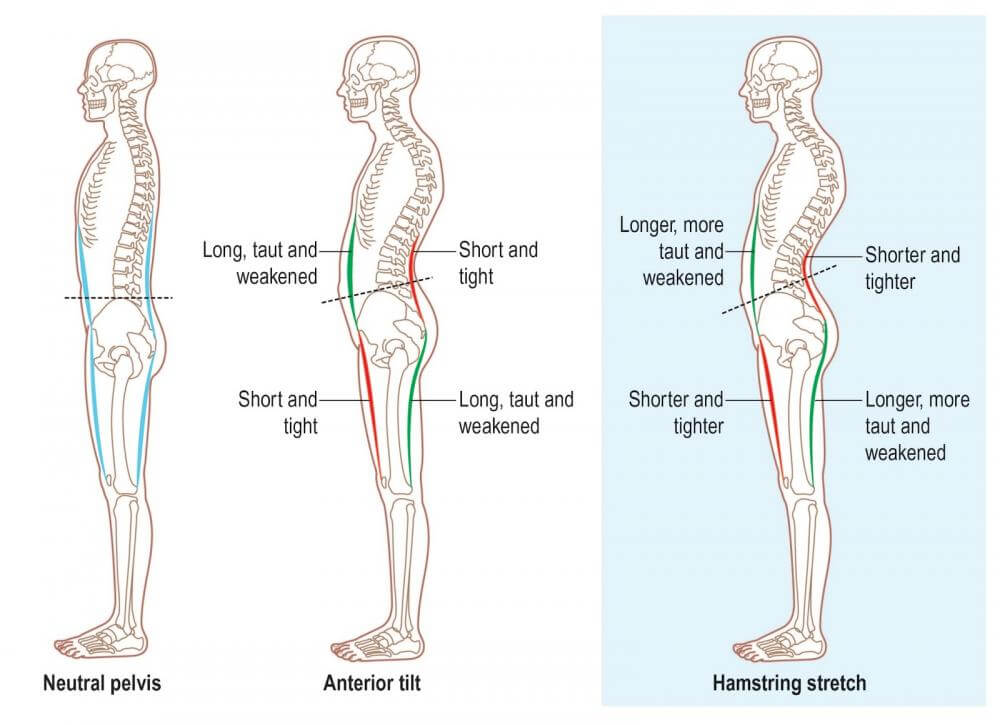The Ancient Greek Hack to Future-Proofing Your Posture
Decades of sitting at a desk can wreak havoc on your muscles.
And all his desk work, which may appear to be mainly work of the mind—reading and writing—also trains his muscles. Teaches his muscles how to be, or how not to be.
Sitting in a chair, he unconsciously teaches groups of muscles on the front of his body, flexor muscles, to tighten—including upper-body muscles that pull the arms and shoulders forward, such as the biceps and pectorals, and lower-body muscles, at the junction of the pelvis and legs, that pull the hips forward.
The pernicious engagement of those muscles—as well as disengagement of the opposite sets of muscles on the back of the body—helps explain why, after sitting for a while, he feels stiff and starts to ache.
“Left to its own devices, your flexors will tighten up and take you back to the fetal position, whence you came—if you don’t do something about it.”
So, before the sitting starts, Stocking tries to compensate for some of his extensor muscles’ impending deprivations.
The biggest muscle in the butt, the gluteus maximus, is a priority because it is the biggest, thickest, most powerful muscle in the body—and the significance of this muscle would be difficult to overstate.
No other mammal even has a gluteus maximus.
Stocking’s strategies for avoiding gluteal amnesia include the hip thrust. With the lower edges of his shoulder blades pressed against the side of a bench, a bed, or a sofa, and with his feet flat on the floor in front of him, his knees bent and his trunk muscles braced—to keep his spine in neutral position—Stocking extends his hips and contracts his glutes.
Stocking’s favorite exercise for the upper body is the row. His favorite form of the row is the reverse pullup.
DNS Star - Peter Attia (@peterattiamd) • Instagram reel
An absolute favorite of mine. I can’t get enough of the DNS star movement. Started this way back with @rintala_movementflow and I keep it up with @drkylerbrown … the more I do it the more I like it.
4 Easy Hip Mobility Exercises And Stretches, Per A Trainer
Complete the recommended reps for each of the four moves and repeat the circuit two to three times.
- Hip Shifts (30 secs)
- Loaded Beasts (Do 10 reps)
- Elevated 90/90 Hip Switch (3 reps on each side)
- Supported Marches (hold for 30 secs, 3 reps each side)
Why stretching your hamstrings won't help your back pain. In fact it's making it worse - PT
Hamstring stretching is a common, generic exercise given as part of low back pain program as well as improving athletic performance. Here’s what you need to be asking yourself: Is stretching my hamstrings necessary? What is the goal/purpose of stretching our hamstrings? When is it the right time to do so?

Help for Tight Hips - Breaking Muscle
Strengthen Your Hip Flexors
- Sit to Tuck
- Hip Flexor Strengthening
- Hip Flex to Squat
- Hip shrimp
- Squat Walk
Below are four awareness exercises to improve mobility through the pelvis.
Help for Tight Hips
Many people think they have tight hips. But is it tightness? Or is it something else?
If you practiced folding forward to touch your toes regularly for three weeks, you would notice it getting easier.
Maybe what you are experiencing is actually hip weakness.
Youtube videos:
- Sit to tuck
- Hip Flexor Strengthining
- Hip Flex to Squat
- Hip Shrimp
- Squat walk
Hip Workouts | Exercises to Strengthen Hips
This 7-move circuit from trainer Yusuf Jeffers will strengthen your hips to prevent injuries and improve running efficiency.
Hip Controlled Articular Rotation
Hip Raise With Lateral Leg Lift
Over-Under Hurdle Walk
Seated Leg Lift
Single-Leg Glute Bridge With Leg Lift
Single-Leg Glute Bridge
Standing Hip Hinge With Rotation
Why You Have Hip Pain—and How to Treat It | Outside Online
The Best Hip Pain Treatment? Train Your Way Out







